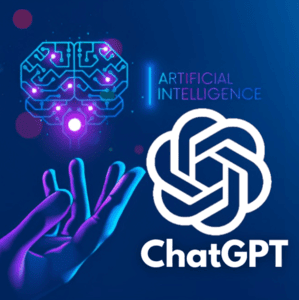Best Study Material for UPSC Exam
UPSC Exam > UPSC Notes > UPSC Mains: Ethics, Integrity & Aptitude > Role of Education in Human Values
Role of Education in Human Values | UPSC Mains: Ethics, Integrity & Aptitude PDF Download
Role of Education in Human Values

- The primary aim of a good education is to nurture human personality across all dimensions, including intellectual, physical, emotional, social, ethical, and moral aspects.
- The process of Data, Information, Knowledge, and Wisdom.
- A school serves as a place where structured learning takes place during the early years of a child's life.
- Schools offer the maximum opportunity and exposure for children to learn and grow. Additionally, schools introduce children to members of the community beyond their families, such as peers, teachers, and other staff.
- This interaction within the school environment helps the child understand how to manage their behavior and engage with society effectively.
Techniques of educational institutional values to impart values:
- Curriculum
- Teaching tools
- Visits and outings
- Discipline
- Community work
- Observation
- Peers
- Teachers as role models
- Dialectics
- Culture
- Reward and punishment
Role of teacher in Human Values
- Create the appropriate environment for students to engage in learning.
- Encourage and inspire the intellectual curiosity of students.
- Act as an example for students to follow.
Learnings about Private relations
- Friendship is developed in schools.
- Schools teach how to interact and behave with the opposite sex.
Etiquettes and values
- In the Netherlands, plastic is not used in classrooms, and students are taught to develop a sensitivity towards nature from an early age, in a natural environment.
- In Bhutan, students learn how to live in harmony with nature.
Behaviour into attitude
Corporal punishment: A child who experiences corporal punishment may believe that ragging juniors is acceptable when he goes to college. As a father, he might think that physical punishment is the proper way to discipline his children. If he becomes a police officer, he could consider custodial torture justifiable for extracting confessions from criminals.
Syllabus and textbooks
- World History: The French Revolution emphasizes the principles of liberty, equality, and fraternity.
- Modern History: Gandhi’s Train to Pretoria stands as a symbol of resistance against injustice.
- Constitutional Values: Democracy, secularism, and human values like truth, love, and compassion are fundamental.
- Literature: It helps us understand human nature and the social values of a particular era.
- Science: Curiosity encourages individuals to question outdated beliefs and harmful religious practices.
- In Kerala, the Class 7 social science textbook includes an imaginative interview between a headmaster and parents seeking admission. The child carries a Christian name, while the father is named Anwar Rashid and the mother, Lakshmi Devi. The headmaster asks the father about the child’s religion, and the father responds, “Let him choose his religion when he grows up.”
- The content of textbooks plays a crucial role in shaping value systems. For example, a passage stating, "Papa is coming from the office while mummy is cooking food and Munni is helping mummy" reflects societal norms and values.
Values of sportsmanship, and team spirit
 |
Download the notes
Role of Education in Human Values
|
Download as PDF |
Download as PDF
Value Education
The North Korean government uses textbooks to instill negative views in children against South Korea and the liberal values of the Western world.
Overall Development
- Take children to nursing homes to foster compassion and altruism.
- Take them to museums and cultural centers to promote tolerance and secularism.
- Engage in tree plantation and street cleaning activities to encourage environmental protection.
- Encourage yoga for maintaining health.
Strength of Educational Institutions in Value Inculcation
- Schools are the primary place of formal socialization.
- They are more effective in imparting values due to authority and control.
- Role models such as senior students and teachers play a significant role.
- A student spends a considerable amount of time in educational institutions.
- Well-designed pedagogical teaching methods are used.
- Peer pressure, mutual comparison, and competition also contribute to value inculcation.
- Cognitive methods, including debates and discussions, further enhance value development.
The problem in the Role of the education institution
- Nature of Education: Education is a process of imparting knowledge, skills, and values to individuals to promote personal and societal development. It encompasses both formal and informal learning experiences that contribute to an individual's overall growth.
- Politicisation of Education: The politicization of education refers to the influence of political agendas and ideologies on educational policies, curricula, and practices. It can lead to biases in teaching and learning, potentially limiting objective, balanced education.
- Rote Learning: Rote learning is a memorization technique where information is repeated over and over until it is recalled. This method focuses on memorization without understanding the underlying concepts and can hinder critical thinking and creativity.
- Quality of Education: The quality of education refers to the effectiveness and relevance of the educational experience in fostering students' intellectual, social, and emotional development. It includes factors like curriculum design, teaching methods, teacher expertise, resources, and the learning environment.
- Access to Quality Education: Access to quality education refers to the availability of inclusive, equitable, and effective educational opportunities for all individuals, regardless of their socioeconomic background, location, or other factors. It emphasizes overcoming barriers like poverty, discrimination, and inadequate infrastructure to ensure that every child receives quality education.
The document Role of Education in Human Values | UPSC Mains: Ethics, Integrity & Aptitude is a part of the UPSC Course UPSC Mains: Ethics, Integrity & Aptitude.
All you need of UPSC at this link: UPSC
|
78 videos|100 docs
|
FAQs on Role of Education in Human Values - UPSC Mains: Ethics, Integrity & Aptitude
| 1. What is the role of education in promoting human values? |  |
| 2. How do values of sportsmanship and team spirit contribute to personal development? |  |
Ans.Values of sportsmanship and team spirit enhance personal development by teaching individuals the importance of cooperation, fairness, and perseverance. These values encourage individuals to work collaboratively towards common goals, promoting social skills and emotional intelligence.
| 3. What are the challenges faced by educational institutions in imparting human values? |  |
Ans.Educational institutions often face challenges such as a lack of trained educators, overcrowded classrooms, and a focus on academic performance over moral education. Additionally, societal influences and cultural differences can hinder the effective teaching of human values.
| 4. How can sports activities in schools promote human values? |  |
Ans.Sports activities in schools can promote human values by providing opportunities for students to practice teamwork, discipline, and respect for opponents. Engaging in sports helps students learn how to handle both victory and defeat gracefully, fostering resilience and camaraderie.
| 5. Why is it important to integrate human values into the curriculum? |  |
Ans.Integrating human values into the curriculum is important because it prepares students to become responsible citizens who contribute positively to society. It encourages critical thinking, ethical decision-making, and awareness of social issues, ultimately leading to a more harmonious community.
Related Searches




























